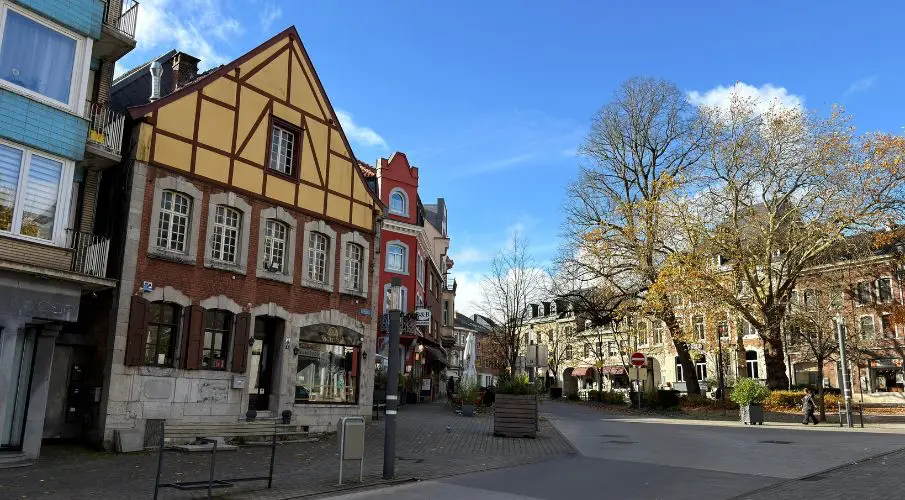In Eupen, the small capital of the German-speaking community in Belgium, a group of ordinary citizens meets on Saturdays to discuss issues that would otherwise get stuck in political committees. A truck driver, a physical therapist, a laboratory assistant - people whose daily lives have nothing to do with party politics but everything to do with the questions that shape public life. They sit in the white parliament building, talk about pensions, schools, care services, and about how to find decisions that do justice to an entire region.

This model has existed for six years, and it is not just any experiment: Ostbelgien was the first region in the world to establish a permanently anchored citizens’ council. Each year around 1,500 letters are sent to randomly selected residents, and about thirty of them become part of the assembly. The participation rate is remarkably high - much higher than in many comparable projects in other countries. People come together for several weeks, listen to experts, discuss, argue, weigh options - and give the parliament recommendations that must be taken seriously. Many have already been implemented: stricter cellphone rules in schools, new regulations for nursing homes, better support for professions that urgently need new recruits.

The effect is tangible. Isabelle François, a young teacher, arrived as a skeptic and left as someone who for the first time understood why political decisions often take so long. She saw how valuable it is to bring people with completely different life paths to the same table. It not only changed her perspective - she even ran in the local elections. Even though she did not win, she found something she had long been missing: trust. Many in Ostbelgien report similar experiences. Michaela Rothkrantz, a housekeeper, had never voted until she became part of the assembly herself. Afterwards she went to the polls - and later saw her suggestions on digital policy implemented. “That makes me really proud,” she said. A sentence rarely heard in times of widespread political frustration.
Of course the model has limits. The citizens’ assemblies do not deal with topics decided in Brussels, and sensitive issues such as immigration are not on the agenda. And some participants wonder whether moderators end discussions as soon as difficult points are raised. Yet even this criticism shows how seriously people take their role. The fact that the so-called citizens’ council - the body that selects the topics for the assemblies - also consists of randomly chosen citizens reinforces the feeling that nothing is controlled from above, but that the agenda truly comes from society itself. The minister-president of Ostbelgien, Oliver Paasch, says that politics can only regain trust if it gives something up. “If we want citizens to have more confidence in us, then we as politicians must place more confidence in the citizens,” he stresses. In a time when far-right parties in many countries profit from dissatisfaction, this sentence feels like a sober reminder that democracy does not only exist in voting booths.
The experiment from Eupen has not triggered a world revolution. But it has achieved something that has become rare: people feel that their voice is not only heard but also needed. And perhaps that is exactly the path societies are looking for when they want to bring their politics closer to the lives of those who are meant to sustain it.
Investigative journalism requires courage – and your support.
Help sustain our reporting and our work. Even a small contribution helps us continue every day. Kaizen operates without ads, without subscriptions, without corporations, without political parties.
Independent – Critical – For Everyone
Thank you for making independent journalism possible.
Updates – Kaizen News Brief
All current curated daily updates can be found in the Kaizen News Brief.
To the Kaizen News Brief In English
Klasse, das ist zukunftsträchtig und ausbaubar! Das bringt Menschen aus ihrer eigenen Bubble mit völlig unterschiedlichen Bedürfnissen zusammen. Würde ich sofort unterstützen.
Ich wohne in Ostbelgien und bereue es auch nicht, hierher gezogen zu sein.Es geht hier in vielen Dingen viel menschlicher zu und Oliver Paasch macht einen richtig guten Job.
Das ist eine tolle Sache.
Ich hatte bis zu Deinem Bericht noch nie davon gehört.
Eigentlich schade, denn diese Art der Politik ist so bürgernah. Gerade wenn es um die kleinen Dinge in Gemeinden geht.
Hoffentlich kappern die Rechte oder ganz Linken das nicht für sich.
..ja ein richtig gutes prinzip, was schule machen sollte…